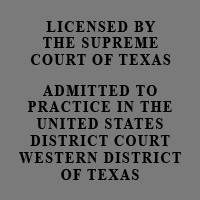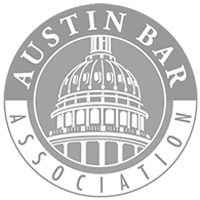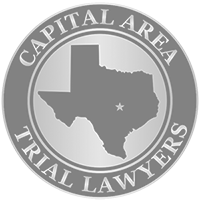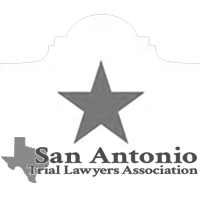Tech Industry Financial Fraud, Silicon Valley Financial Fraud, and Venture Capital Fraud Can Be The Basis of Large Bounty Actions Where Technology Professionals With Original Information of Financial Fraud Can Anonymously Expose Fraud and Earn Large Whistleblower Rewards by Tech Industry Financial Fraud Lawyer, Silicon Valley Financial Lawyer, and Venture Capital Fraud Lawyer Jason Coomer
Technology professionals and financial professionals with original knowledge are being offered large financial rewards for properly exposing financial fraud in the technology industry. These bounty actions can be obtained anonymously by being the first to properly report original information of significant financial fraud through bounty action lawyer. The financial rewards can be up to 30% of any fines or disgorgement recovered by through the reported fraud. The goal of these bounty actions is to encourage professionals with specialized expertise to expose large scale fraud. Included in these bounty actions are protections that are designed to protect high end professionals who want to expose this fraud. One of the most beneficial protections is the ability to report fraud schemes anonymously through a bounty action lawyer.
If you are aware of significant Tech Industry Financial Fraud, Venture Capital Fraud, Silicon Valley Financial Fraud, Wall Street Financial Fraud, or other fiancnial fraud, please feel free to contact Tech Industry Financial Lawyer Jason Coomer via e-mail message or use our submission form about a potential Securities Fraud Whistleblower Lawsuit, Financial Fraud Whistleblower Lawsuit, SEC Violation Whistleblower Action, SEC Whistleblower Incentive Program Action, or other Whistleblower Bounty Action.
Insider Trading, False Financial Reports, and other Forms of Financial Fraud Can Be the Basis of Large Bounty Actions
The federal securities laws require public companies to disclose information on an ongoing basis. For example, domestic companies must submit annual reports on Form 10-K, quarterly reports on Form 10-Q, and current reports on Form 8-K for a number of specified events and must comply with a variety of other disclosure requirements. The annual report on Form 10-K provides a comprehensive overview of the company's business and financial condition and includes audited financial statements. Although similarly named, the annual report on Form 10-K is distinct from the annual report to shareholders, which a company must send to its shareholders when it holds an annual meeting to elect directors. The SEC is offering large financial bounties to financial professionals who properly expose false financial reports, executive insider trading, hedge fund insider trading, private equity fund fraud, money manger insider trading, hedge fund manager illegal trading, stock manipulation schemes, and other violations of securities law. These insider trading whistleblower rewards can be obtained by financial professionals with knowledge of illegal insider trading and other SEC violations. The SEC encourages all financial professionals with original knowledge of executive insider trades, hedge fund insider trades, private equity fund fraud, false misleading information on a company's financial statements, false information on Securities and Exchange Commission (SEC) filings, stock manipulation schemes; embezzlement by stockbrokers; and other securities fraud to properly expose the violations.
Securities fraud, also known as stock fraud and investment fraud, is the unlawful practice of inducing investors to make investment decisions on the basis of false information, frequently resulting in losses, in violation of the securities laws. Securities fraud whistleblower lawsuits include deceptive practices in the stock and commodity markets, and occur when investors are enticed to part with their money based on fraudulent misrepresentations. Securities fraud whistleblower lawsuits include outright theft from investors and misstatements on a public company's financial reports as well as a wide range of other actions, including insider trading, front running and other illegal acts on the trading floor of a stock or commodity exchange. Evidence for a securities fraud whistleblower lawsuit may include:
-
False or misleading information on a company's financial statement;
-
False or misleading information on Securities and Exchange Commission (SEC) filings;
-
Lying to corporate auditors;
-
Insider trading;
-
Stock manipulation schemes;
-
Embezzlement by stockbrokers;
-
Manipulation of a security prices or volumes;
-
Fraudulent or unregistered offer or sale of securities, including Ponzi schemes, high yield investment programs or other investment programs;
-
Brokerage Account and Retirement Account Fraud;
-
False or misleading statements about a company;
-
Failure to file required reports with the SEC;
-
Abusive naked short selling;
-
Theft or misappropriation of funds or securities;
-
Fraudulent conduct or other problems associated with municipal securities transactions or public pension plans; and
-
Bribery of foreign officials
Through new legislation the federal government is offering financial incentives to securities fraud whistleblowers and other financial fraud whistleblowers to step up and blow the whistle on properly reporting financial fraud including the above listed forms of securities fraud that lead to SEC violations and fines. These new whistleblower bounties can be collected by whistleblowers that properly report SEC violations, financial fraud, securities fraud, commodities fraud, and stimulus fraud.
Other forms of SEC Violations including reporting problems with a brokerage or advisory account; fraudulently preventing access to funds or securities; fraudulent order handling, trade execution, or confirmations; fraudulent fees, mark-ups or commissions; and inaccurate or misleading disclosures by financial professionals, may also lead to potential SEC bounties, if the fraudulent acts result in fines of over $1 million and are properly reported.
The Federal Government has enacted new Bounty Action Whistleblower Reward laws that offer large financial rewards to individuals and businesses that properly expose securities fraud and other forms of investment fraud. These new Bounty Action Whistleblower Reward laws allow professionals to expose fraud through an attorney while protecting their identity and seeking a financial reward. These laws are first to file laws and require original information or specialized information, but do offer large financial rewards to the first whistleblower that properly exposes the fraud and corruption. The first step for many professionals that want to expose fraud and corruption is to have a lawyer confidentially review their potential case and provide advice as to which laws may apply and the strength of their potential case.
To date, approximately $153 million has been awarded to 43 whistleblowers who became eligible for an award after voluntarily providing the SEC with original and useful information that led to successful enforcement actions.
The U.S. Securities and Exchange Commission (SEC) and SEC Whistleblower Incentive Program
The U.S. Securities and Exchange Commission (frequently abbreviated SEC) is a federal agency which holds primary responsibility for enforcing the federal securities laws and regulating the securities industry, the nation's stock and options exchanges, and other electronic securities markets in the United States. The mission of the U.S. Securities and Exchange Commission is to protect investors, maintain fair, orderly, and efficient markets, and facilitate capital formation.
The SEC was created in 1934 and enforces the Securities Act of 1933, the Trust Indenture Act of 1939, the Investment Company Act of 1940, the Investment Advisers Act of 1940, the Sarbanes-Oxley Act of 2002 and other statutes. The SEC was created by section 4 of the Securities Exchange Act of 1934 (now codified as 15 U.S.C. § 78d and commonly referred to as the 1934 Act).
The laws and rules that govern the securities industry in the United States derive from a simple and straightforward concept: all investors, whether large institutions or private individuals, should have access to certain basic facts about an investment prior to buying it, and so long as they hold it. To achieve this, the SEC requires public companies to disclose meaningful financial and other information to the public. This provides a common pool of knowledge for all investors to use to judge for themselves whether to buy, sell, or hold a particular security. Only through the steady flow of timely, comprehensive, and accurate information can people make sound investment decisions.
The SEC is responsible for administering eight major laws that govern the securities industry. They are: the Securities Act of 1933, the Securities Exchange Act of 1934, the Trust Indenture Act of 1939, the Investment Company Act of 1940, the Investment Advisers Act of 1940, the Sarbanes-Oxley Act of 2002, the Credit Rating Agency Reform Act of 2006, and the Dodd-Frank Wall Street Reform and Consumer Protection Act.
The enforcement authority given to the SEC by Congress allows it to bring civil enforcement actions against individuals or companies alleged to have violated securities law or committed securities fraud including committing accounting fraud, providing false information, or engaging in insider trading.
The SEC oversees the key participants in the securities world, including securities exchanges, securities brokers and dealers, investment advisors, and mutual funds. Here the SEC is concerned primarily with promoting the disclosure of important market-related information, maintaining fair dealing, and protecting against fraud. Crucial to the SEC's effectiveness in each of these areas is its enforcement authority. Each year the SEC brings hundreds of civil enforcement actions against individuals and companies for violation of the securities laws. Typical infractions include insider trading, accounting fraud, and providing false or misleading information about securities and the companies that issue them.
One of the major sources of information on which the SEC relies to bring enforcement action is investors themselves — another reason that educated and careful investors are so critical to the functioning of efficient markets. To help support investor education, the SEC offers the public a wealth of educational information on this Internet website, which also includes the EDGAR database of disclosure documents that public companies are required to file with the Commission. Though it is the primary overseer and regulator of the U.S. securities markets, the SEC works closely with many other institutions, including Congress, other federal departments and agencies, the self-regulatory organizations (e.g. the stock exchanges), state securities regulators, and various private sector organizations. In particular, the Chairman of the SEC, together with the Chairman of the Federal Reserve, the Secretary of the Treasury, and the Chairman of the Commodity Futures Trading Commission, serves as a member of the President's Working Group on Financial Markets.
In July 2010, the Dodd-Frank Wall Street Reform and Consumer Protection Act was signed into law which includes significant new financial fraud bounty whistleblower provisions. These provisions create economic incentives for SEC violation whistleblowers and other financial fraud whistleblowers with "original information" of SEC violations and financial fraud to blow the on large scale financial fraud and SEC violations.
These SEC bounty claims must be brought voluntarily under the SEC Bounty Programs by one or more individuals. The whistleblower or whistleblowers must be a natural person or natural persons, companies or other entity is not eligible to be financial fraud bounty whistleblowers. Successful SEC violation bounty whistleblowers and financial fraud whistleblowers can collect financial rewards for whistleblower bounty actions that result in the imposition of monetary sanctions of greater than $1 million dollars. This new financial fraud SEC bounty program is called the "Securities Whistleblower Incentives and Protection".
Through SEC Whistleblower Bounty Actions the SEC will award between ten percent and thirty percent of the money collected to a qualified whistleblower who voluntarily provides the SEC with original information about a violation of the securities laws that leads to a successful enforcement of an action brought by the SEC that results in monetary sanctions exceeding $1,000,000.00.
So long as the financial fraud whistleblower or financial fraud whistleblowers base their claims on "original information", any person (not just an employee or insider) may file a SEC financial fraud bounty claim. Further, if the financial fraud whistleblower is represented by an attorney, the whistleblower may file the financial fraud bounty claim anonymously. However, before the financial fraud bounty award is paid, the whistleblower's identity shall be revealed to the SEC and SEC shall be provided information about the whistleblower that it requests.
SEC Securities Fraud Whistleblower Lawsuits, Dodd-Frank Act Financial Fraud Whistleblower Bounty Actions, CFTC Commodity Fraud Whistleblower Lawsuits, SEC Whistleblower Incentive Program Claims, Financial Fraud Derivatives Bounty Actions, & Financial Fraud False Claims Act Whistleblower Lawsuits
Financial Fraud Whistleblower Lawsuits, Securities Fraud Whistleblower Lawsuits, Commodity Fraud Whistleblower Lawsuits, Stimulus Fraud Whistleblower Lawsuits, and SEC Violation Whistleblower Lawsuits will become more common with the enactment of laws like the Dodd-Frank Wall Street Reform and Consumer Protection Act that create bounties that can be collected by whistleblowers that properly report SEC violations, financial fraud, securities fraud, commodities fraud, and stimulus fraud that result in monetary sanctions over one million dollars ($1,000,000.00). The SEC can award the whistleblower up to 30% of the money collected.
SEC fines like the $550 million dollar fine that Goldman Sachs agreed to pay in 2010 to settle a civil suit over a package of mortgage-backed securities designed by a hedge fund which was shorting the housing market, $50 million dollar SEC fine of GE for accounting misdeeds when General Electric broke rules and defrauded investors, and the SEC fines to Citigroup Inc. and Putnam Investments for $20 million and $40 million, for alleged concealing from customers the fact that brokers were paid to recommend certain mutual funds, creating a conflict of interest are examples of financial fraud that Congress is hoping financial fraud whistleblowers will come forward and expose.
By creating whistleblower bounties for investors and people with specific information of financial fraud, it is expected that hard to detect financial fraud including derivative market fraud and investment fraud will be exposed to help regulate the financial market and prevent large investment corporations, banks, hedge funds, and other large corporations from committing financial fraud of billions of dollars.
SEC Violation Whistleblower Lawyer, Financial Fraud Whistleblower Bounty Lawyer, SEC Whistleblower Incentive Program Lawyer, SEC Violation Lawyer, and Securities Fraud Whistleblower Lawyer
As a Financial Fraud Whistleblower Lawyer and Securities Fraud Whistleblower Lawyer, Jason S. Coomer commonly works with other powerful financial fraud and securities fraud whistleblower lawyers to handle large Securities Fraud Whistleblower Lawsuits, Securities Fraud Bounty Actions, Commodity Fraud Bounty Claims, and other Financial Fraud Lawsuits. He also works on Medicare Fraud Whistleblower Lawsuits , Defense Contractor Fraud Whistleblower Lawsuits, Stimulus Fraud Whistleblower Lawsuits, Government Contractor Fraud Whistleblower Lawsuits, and other government fraud whistleblower lawsuits.
If you are the original source with special knowledge of fraud and are interested in learning more about a whistleblower lawsuit, please feel free to contact Financial Fraud Whistleblower and Securities Fraud Whistleblower Lawyer Jason Coomer via e-mail message.
Feel Free to Contact Us with any Questions
Associations




